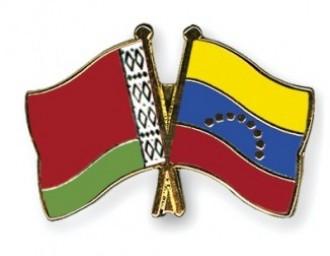Andrei Yahorau: Belarus won’t lose much from the change of power in Venezuela

If it will be opposition who wins the presidential elections in Venezuela, the relations with Belarus could become chillier. However, such change won’t bring serious damage to the Belarusan economy.
This opinion to the EuroBelarus Information Service shared Andrei Yahorau, political scientist, the director of the Centre for European transformation.
Over a period of 30 days after Hugo Chavez’s death new presidential elections are to take place. The main presidential aspirants are Chavez’s successor Nicolás Maduro and the leader of the untied opposition Henrique Capriles who opposed Chavez at the elections of October 2012.
Andrei Yahorau believes that in case the power in Venezuela will go to the successor of Hugo Chavez, then we have to expect the continuation of cooperation with Belarus practically in the same regime that it was before. Of course, to mend the relations on personal level some time is required. However, on the whole the cooperation of the two countries will be continued.
There is no doubt that mutual understanding between Hugo Chavez and Aliaksandr Lukashenka in person played its role. “Still, the relations between Belarus and Venezuela were mutually beneficial. Of course, they were strengthened by the relations of two dictatorships and two dictators directly. But as the two states find this cooperation advantageous both economically and symbolically, it means that such cooperation will be preserved”, - highlighted Andrei Yahorau.
But in case democratic opposition forces come to power in Venezuela, we can expect their decisive actions to restore relations with the US, which is the main force at the geopolitical area in Latin America, the political scientist assumes. In this case we can hardly expect that the cooperation between Belarus and Venezuela will remain the same. In order to improve relations with the democratic states the relations with such countries as Belarus would acquire second priority.
But there is no saying that the cutback on cooperation with Venezuela will hit at the Belarusan economy. “There was no large trade volume between Belarus and Venezuela. So in any case, the losses will be not that huge. Of course, it can damage some private issues, but Belarus won’t suffer seriously in the dealings between the two countries”.
-
03.01
-
07.10
-
22.09
-
17.08
-
12.08
-
30.09








































